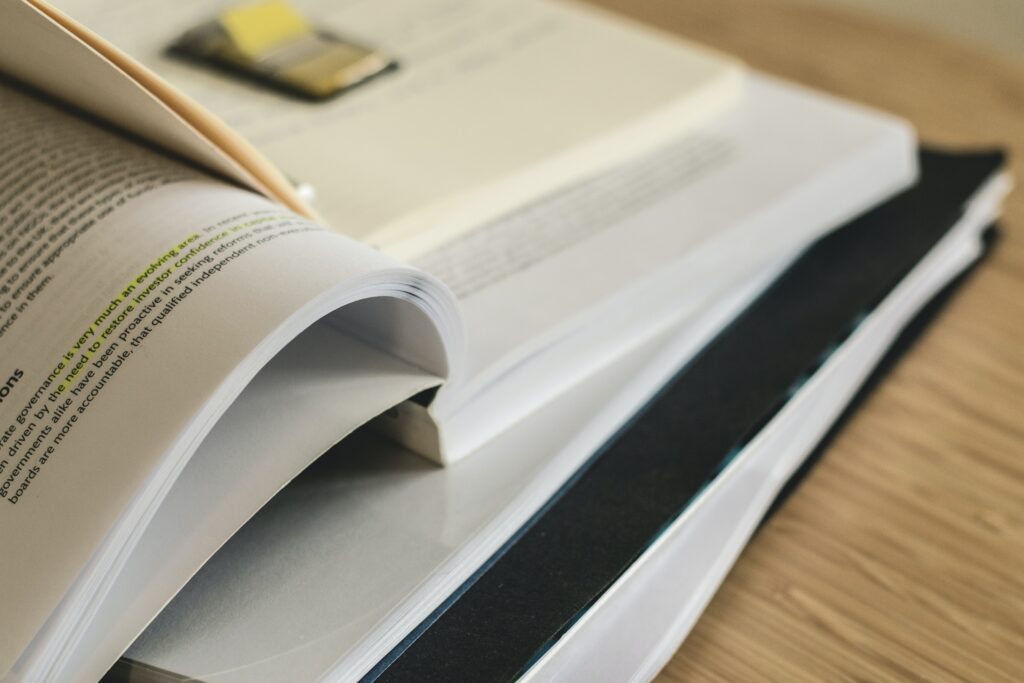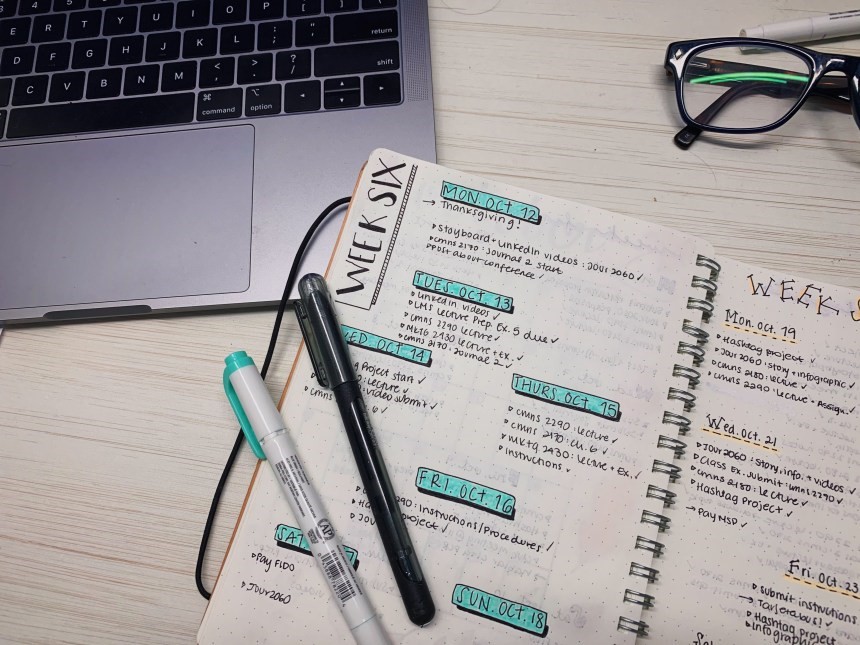Transitioning from high school to university might seem really scary at first, especially when it comes to assignments, group projects, and, of course, tests! Chances are you have probably procrastinated in the past, trying to cram all the information into your brain the night before. Maybe you’re wondering how you can improve your organization skills to stop this from ever happening again, especially now that you are moving onto higher education. But don’t panic! We want you to feel prepared for your first semester at TRU – the expectations and the format of classes may be different than high school, but, if you go in with a plan, we know you’ll feel like a pro in no time.
In this blog, I will be sharing with you some of the things I have learned throughout my university journey at TRU to keep organized during midterm season and throughout the semester. Hopefully you can use these tips and tricks during your transition to post-secondary, and they make you feel a bit more prepared.
1. Look at your syllabus and search for key due dates
During the first week of classes, professors will usually go over the class syllabus. This means that they will provide a brief description and outline of the course as well as a breakdown of the assignments for the whole semester. This is one way university may differ from what you’re used to in high school – take advantage of the dates and deadlines outlined in the syllabus at the start of the semester to write down all your key dates in a calendar. This includes major assignments, projects, and tests scheduled throughout the course. You could choose to use a big, old-fashioned paper calendar or a digital one. I prefer having a digital one because I can access it in on my phone and on my computer, which will become your new best friend during university! Personally, Google Calendar helps me keep track of deadlines, allowing me to color-code due dates for different courses and even set reminders. I also try to set up a deadline before the actual deadline, which I find useful in staying organized. Overall, having a calendar will allow you to see the big picture each month and help you stay on top of your course load.

2. Use a planner to keep track of daily tasks each week
The calendar was one part of the solution, but you’ll also want to keep track of all the small things you need to do every day. I recommend using a planner! In your planner, write down a to-do list for each day of the week where you include all things you want to accomplish that day. I love using a bullet journal where I write down an overview of the week and then write down all my tasks, such as working on assignments, studying for a midterm, or even doing laundry. Something to keep in mind when making to-do lists is to avoid overwhelming yourself. Make a list of things that you realistically will be able to complete during the amount of time you have. By using a planner, you will also be able to break larger tasks into smaller chunks during the week, allowing you to plan ahead and finish everything before the due date. For example, if you need to prepare for a midterm and you know you will be tested on three long and hard chapters, make sure you leave enough time to study a chapter a day during the week leading up to the test rather than trying to cover all three chapters the day before.
A photo of my personal bullet journal/planner:

3. Create a midterm schedule
After the first few weeks of the semester, it is very likely that your first midterms will start to sneak up on you. This is why it is important to keep a calendar at the beginning of the semester, so when midterm season comes around, you can take a look at your super organized and neat calendar and figure out how many tests you need to study for. Once you know that, you can create a study schedule in which you detail when and how much time you’ll be dedicating to each subject. This can go into the planner I mentioned before, or you can create a separate schedule solely dedicated to midterms. Again, be realistic, do not schedule your study sessions early in the morning if you know you are not a morning person and work better later during the day. Make sure to keep a good balance between your midterms and your other coursework as well, since not all classes you take will test you on the material (another reason why you should be familiar with the syllabus). Sticking to your schedule will save you lots of time and increase your overall productivity.
4. Find your ideal study space
One of the things I love about TRU is the beautiful campus and the variety of study spaces there are. During your first week here, I would recommend checking out different buildings to find your ideal study space – one where you won’t get easily distracted. Whether that will be the Library at the Brown Family House of Learning, or the common area at the Campus Activity Center, take advantage of everything TRU has to offer.
5. Keep a good balance between school and self-care.
As cliché as it sounds, don’t forget to take breaks in between studying sessions. Make sure to leave enough time on your to-do list to do things you actually enjoy! These could include anything from watching a movie, going to the gym, or taking a relaxing bubble bath. Especially during midterm season, it is extremely important to make sure you eat well during the day and sleep at least 7 hours at night. No matter how much you studied for a test or how many calendars you have, if you stay up until midnight on your phone or don’t have breakfast before your midterms, chances are you won’t do very well. As you begin your #myTRU journey, you will soon realize that TRU has so much more to offer than just academics. I personally love to get involved in clubs or different peer mentor groups. This is not only a great way to distract yourself a little from your classes but also to make new friends and meet people from all over the world. I’ve found that, as I learned how to balance my stress in a healthy way, I was able to stay organized and perform better overall.

There are many other tips out there, but I hope these come in handy when you start your #myTRU journey. Let me know if you have any other advice to stay organized during midterms in the comments below!
– Valeria, Future Student Ambassador

